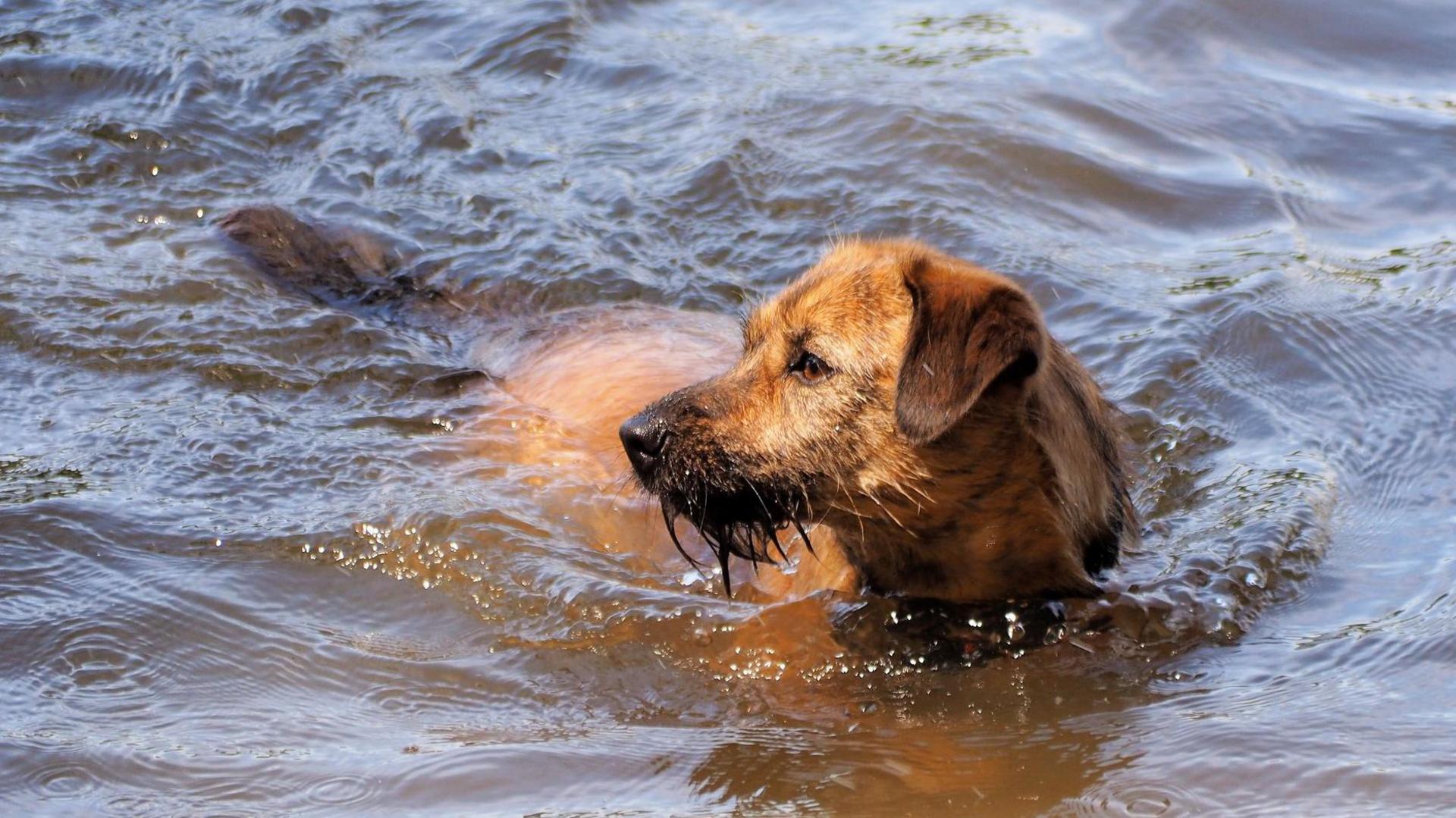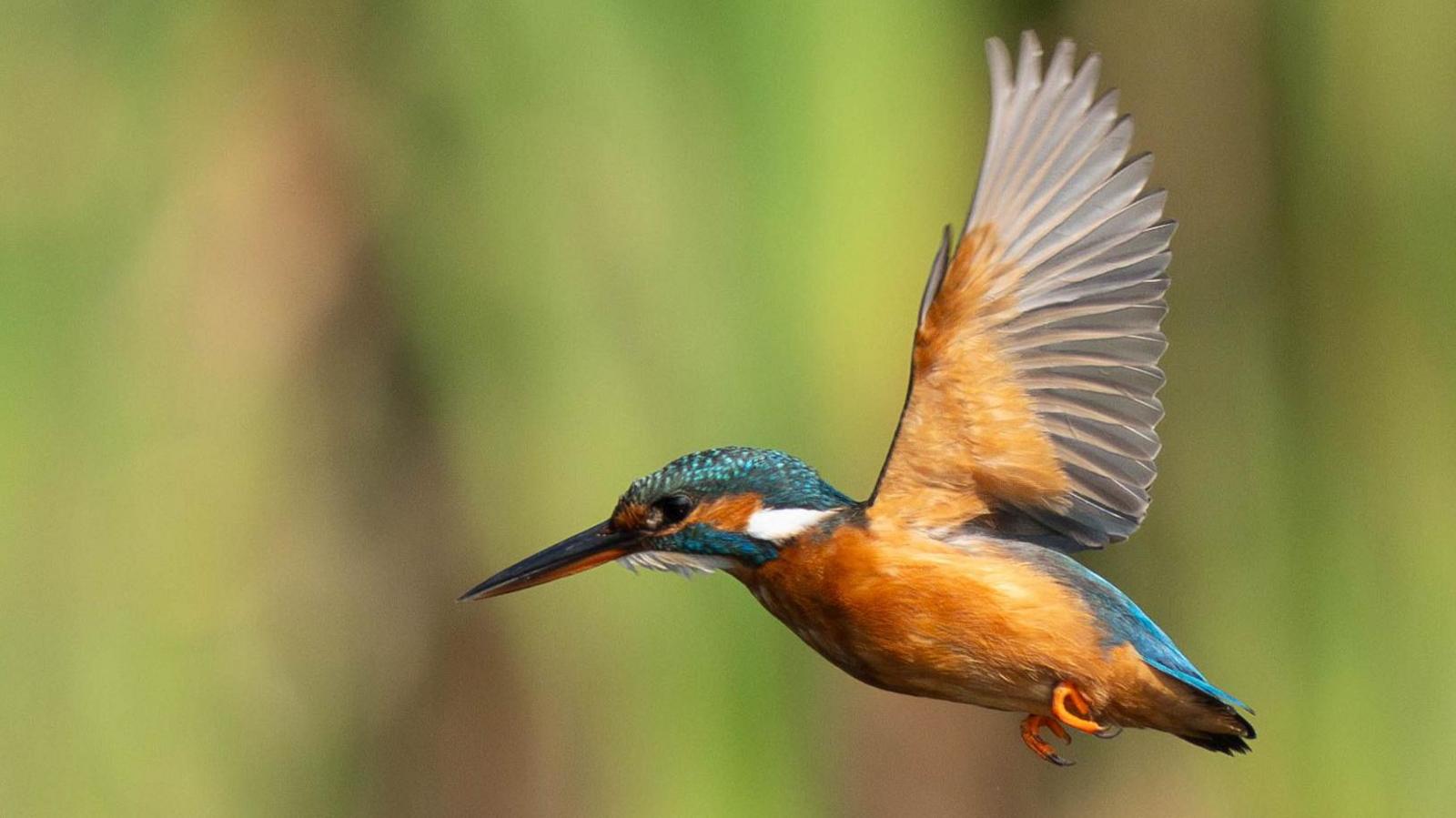Broads warns of potential impact of flea treatments

Swimming is just one of the ways the harmful chemicals can enter waterways
- Published
The organisation that manages The Broads National Park has called for better awareness of the "shocking" impact pet flea treatments have on waterways.
Powerful insecticides that are banned in farming due to their harm to the environment are contained in "spot-on" products used on cats and dogs.
The chemicals pose "significant risks" to aquatic wildlife, whether from a dog swimming in the water or indirectly when washing hands or pet bedding, the Broads Authority said.
"Pet owners aren't necessarily tuned in to the environmental dangers posed by these treatments as the issues have not been widely publicised," said environment policy adviser Andrea Kelly.
"It is shocking just how serious the negative impacts might be of these flea treatments on our waterways, especially considering how readily available the products are.
"Given how many people love seeing kingfishers and other wildlife when on the rivers, we believe lack of awareness is the main reason why this has become such a widespread form of pollution."

By entering the food chain, the chemicals can harm birds such as the kingfisher
The Broads Authority, which manages the park in Norfolk and Suffolk, said it welcomed the government's new "road map" to address the pollution.
It will focus on awareness and an evidence-based review, and could lead to regulation of fipronil and imidacloprid.
"We hope that by adding our name to the list of organisations working to raise awareness of this issue we can better educate pet owners and encourage them to change their habits to help our precious wetland habitats," added Ms Kelly.
What can pet owners do?
Consider less-toxic flea and tick treatments, such as those containing dimethicone, which work by physically immobilising parasites rather than poisoning them
Stop their dog from entering rivers, lakes, ponds or ditches if they have been recently treated with spot-on treatments
Choose oral chewable tablets that offer protection against fleas and ticks but do not require insecticides to be applied to the coat
If spot-on treatments must be used, apply them only when necessary (as not all pets require year-round use) and try not to get any treatment on their hands
Source: Broads Authority
The insecticides persist on a pet's coat for week and the chemicals can remain active for up to 90 days, even though they kill fleas within 24-36 hours.
At particular risk are insects such as dragonflies, damselflies and freshwater beetles - all essential species for a healthy wetland system, the Broads Authority said.
They spend much of their life underwater and provide food for fish, birds, and other wildlife, and are "extremely sensitive" to pollution.
Studies have also shown that nests lined by birds with treated animal fur have a greater number of unhatched eggs or dead chicks, it said.
Dr Emily Nightingale, a vet near Ipswich, said the issue was "deeply concerning".
"This is something that the vet sector has been looking at for a number of years - the wider spread of the effects of pesticides that we are using as a preventative in animals, as a treatment for fleas ticks, mites and worms.
"We need to make sure we are choosing the right treatment so it is appropriate for that animal and their environment, and to make sure we are not over-treating or under-treating."
Announcing Defra's roadmap in July, external, biosecurity minister Baroness Hayman said it would develop a better understanding of the impact of flea and tick treatments.
"This government is absolutely committed to restoring nature and reducing harms posed by chemicals in the environment," she added.
Get in touch
Do you have a story suggestion for Norfolk?
Follow Norfolk news on BBC Sounds, Facebook, external, Instagram, external and X, external.
- Published26 March

- Published28 February 2024
